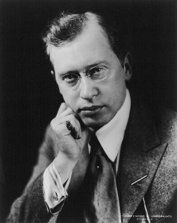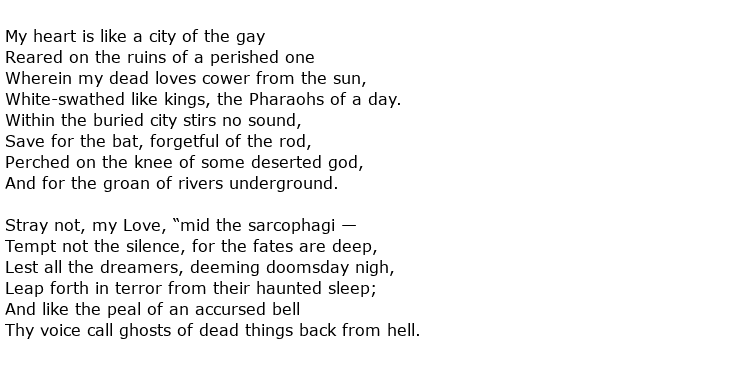 George Sylvester Viereck, a German-born American poet and magazine editor, held strongly pro-Nazi views. He used his weekly periodical The Fatherland during the First World War to spread Nazi propaganda.
George Sylvester Viereck, a German-born American poet and magazine editor, held strongly pro-Nazi views. He used his weekly periodical The Fatherland during the First World War to spread Nazi propaganda.
He was born on the last day of 1884 in Bavaria. His family circumstances suggested royal connections with one story indicating that George’s father may have been Kaiser Wilhelm I”s son. It was a somewhat disjointed upbringing though where the boy was brought up by a member of the famous Hohenzollern dynasty but he did, nevertheless, receive a good education. He was showing some talent as a poet from the age of 11, quoting the likes of Oscar Wilde and Napoleon Bonaparte as having a strong influence on his thinking.
His father decided to emigrate to the USA in 1896, this being the land of his actress wife Laura. Mother and son followed one year later. George earned a place at a New York college and graduated from there in 1906. Two years earlier though he had his first collection of poetry published, aided and encouraged to do so by literary critic Ludwig Lewisohn. Viereck became famous nationwide the following year when his

was published to great critical acclaim. The literary critic of the Saturday Evening Post described this young and up and coming poet as

Over the next five years Viereck began to rediscover his German roots, becoming a self-confessed Germanophile, eager to discover and promote German culture and literature. His book

became a best-seller in 1908 and he was at Berlin”s University in 1911, lecturing his students on the subject of American poetry. He was anti- the coming war though but his support of his homeland resulted in social exclusion, from clubs and the like, back in New York. His strong views on Nazi activities enraged many, resulting in a mob storming his Mount Vernon house during August 1918. He managed to escape them, taking refuge in a city hotel. The damage to his reputation as a poet was done though and the

expelled him from their ranks in 1919.
His views remained unchanged and were, perhaps, enhanced during the following decades when he met such important figures as Adolf Hitler, Albert Einstein and Benito Mussolini. He tried to portray the rise of Germany”s National Socialism as a good thing and, while he had some support in New York for his views, Jewish friends renamed him

His literary output was not considerable but much of his work showed an interest in the ancient mysteries and vampirism. The latter was explored in his 1907 book

which suggested that such a creature was not just a blood sucker but had other (psychic) facets. During the 1920s he wrote about ancient Egypt and his 1924 collection

included the poem

reproduced here:

It was not surprising that Viereck’s strong political views would land him in trouble during the early 1940s and he was duly arrested on the charge of being a National Socialist agent. His incarceration between 1942 and 1947 led to a hard-hitting memoir called

published in 1952, portraying brutalities such as homosexual rape in prison.
George Sylvester Viereck died on the 18th March 1962 at the age of 77.

